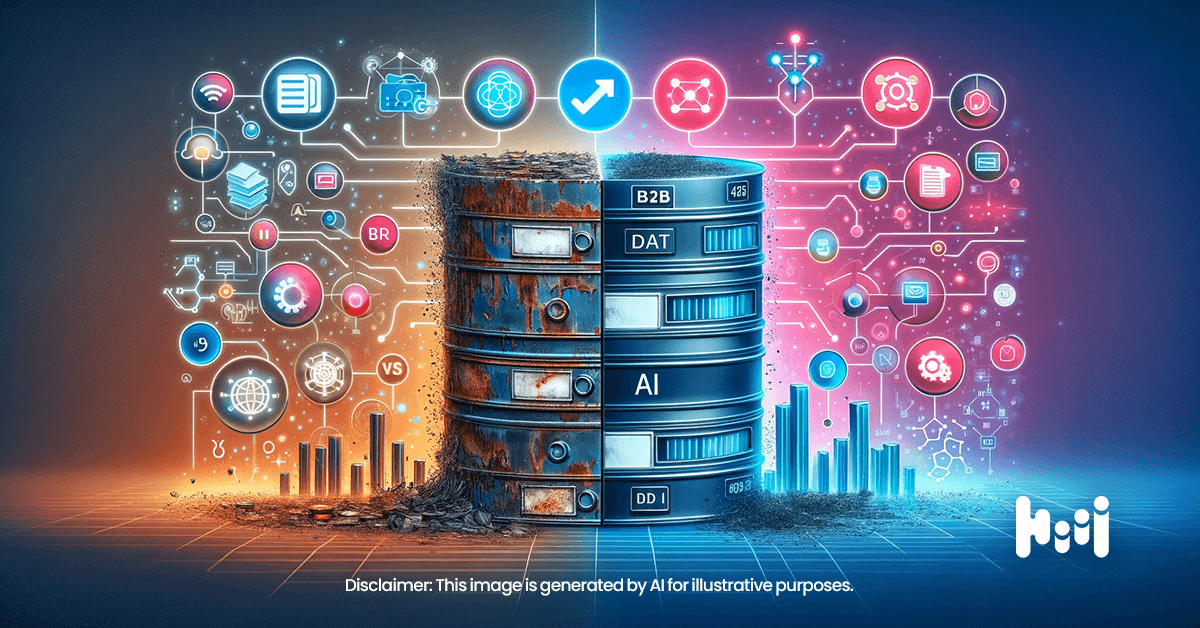Besides turning profit, B2B companies have taken on another big focus—proving to customers that they’re as socially and environmentally steadfast as possible, both in work practices and operations. That’s because nowadays, B2B buyers have made it a point to evaluate companies and their products on the basis of environmental, social, and corporate guidance (ESG) and corporate social responsibility (CSR).
Outside of assessing product costs, problem-solving capabilities, and potential ROI, B2B buyers also consider additional aspects, like:
- How does this company treat their employees?
- What’s the carbon footprint of this product and its packaging?
- Does this company support diversity and inclusion, even at the executive and board level?
- How does this company give back to the community and what charities do they support?
Understanding the Socially Conscious B2B Buyer
According to Craig Charney, Research Director for the American Marketing Association New York (AMA-NY), “Companies in the B2B space need to understand their customers are doubly motivated to respond to social purpose—first as citizens and consumers who care about it, and second, as people working for firms themselves concerned with purpose.”
This isn’t just a theoretical observation. Rather, Charney’s insight stems from AMA-NY’s recent survey, “The Future of Marketing,” which highlights the rise of socially conscious consumerism in today’s B2B industry. Here’s what else the survey uncovers:
B2B Social Responsibility Stats
- 72% of B2B buyers are more likely to purchase from companies that do well on socio-political issues they consider important.
- 55% of B2B customers admit a company’s support of social or political causes has influenced purchase decisions.
- About 75% of respondents say they’re prepared to pay more to do business with a company that operates responsibly.
- 38% of those same respondents say they’d be comfortable paying over 10% of the average cost to support a socially responsible company.
- And 17% say they’d feel fine to pay an additional 25% over average cost to a company that practices impactful CSR and ESG programs.
Bottom line, the bigger a B2B company invests in legitimate ESG and CSR initiatives, the more important that brand’s purpose becomes to B2B buyers. And the more important a brand’s purpose is to target customers, the more that company can build brand awareness and drive lead generation among intent buyers with a focus on responsible practices.

AMA-NY’s survey also pinpoints the top social purposes companies should address, according to respondents. Here’s how they rank:
- Being a good employer (34%)
- Corporate citizenship; giving back to the community (27%)
- Sustainability and environmental protection (24%)
- Racial equality (23%)
- Workplace diversity (23%)
These findings highlight a salient, but often overlooked fact: B2B buyers are people, too. It’s exactly what Charney echoes in his earlier statement, positioning customers as not just socially minded employees, but as worldly citizens concerned with purpose as well. Hence, B2B companies should make it a point to implement ESG and CSR values into their sales and marketing communications and overall corporate strategy to expand brand awareness and build credibility among target customers.
ESG is VIP for B2B
And guess what? Companies are doing just that!
In response to increasing economic, environmental, and societal uncertainty, corporations have made ESG commitments and pledges at an unprecedented rate.
According to a recent KPMG study, 95% of the world’s largest companies have implemented ESG programs, and 90% of those organizations report progress. More importantly, B2B businesses have also learned to leverage internal ESG programming as a way to market themselves as socially conscious organizations to in-market buyers. That’s because customers want to partner with corporations they trust are doing right by the environment, their employees, and their communities.
Research shows that over three-quarters (76%) of B2B decision makers think companies should do more to communicate ESG commitments publicly, and 64% believe that organizations failing to do so end up missing out on profitable business opportunities. This all goes to show how influential ESG and CSR values have become in the purchase decision-making process of B2B buyers.

Purpose-Driven B2B Marketing
So, how can B2B companies promote their ESG and CSR efforts to socially conscious buyers? Considering the huge impact these efforts have on the bottom line, we’d say it’s ok to brag.
In the AMA-NY survey mentioned earlier, most respondents said they like to hear from companies directly about their brand purpose and CSR achievements. More specifically, 51% said they’re more likely to trust a company whose ads promote an ESG or CSR-minded purpose, 37% said they trust third-party content (i.e., news articles, company reviews) from a socially responsible company, and 34% said they trust the facts of companies’ social responsibility reports.
In fact, organizations have recently ramped up plans to standardize ESG reporting to make it more trustworthy for the mass public. For example, GRI Standards, an organization that measures corporate sustainability efforts, enables any business—large or small, public or private—to understand and report their impacts on the economy, environment, employees, and customers in a credible, comprehensive way, thereby increasing transparency and enhancing brand reliability.
So go ahead, promote your brand’s environmental, social, and corporate governance efforts. But remember: B2B CSR isn’t just some fodder for marketing content. Instead, a company’s ESG and CSR values should be deeply rooted in its corporate DNA, and they should be shared and fostered culturally within the organization.
Summary
Now more than ever, B2B buyers keep a keen eye on companies’ corporate social responsibility efforts, which provides an opportunity for socially conscious B2B businesses to win over customers and gain market share. Purpose-driven B2B marketing can help unify employees, customers, and community all at once, creating a competitive advantage over those who appear to only care about the bottom line.
***
Want to learn how B2B brands can boost credibility in today’s socially conscious environment? Check out our white paper, “From Fails to Sales: Turn Long Lead Lists into Big Gains.”











